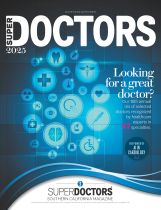American Cancer Society (
cancer.org)
November 9, 2015
By Stacy Simon
A harsh truth about lung cancer is that it doesn't usually cause symptoms until the cancer is already advanced and not able to be cured. That's why the idea of screening - looking for lung cancer in people who do not have any symptoms - is appealing. It has the potential of finding the cancer earlier, when it's easier to treat.
But screening carries risks that may outweigh the benefits for most people. The people who are most likely to benefit from screening are those at higher risk for lung cancer, such as people with a long history of smoking.
How lung screening works
A computed tomography (CT or CAT) scan uses x-rays to produce detailed cross-sectional images of the lungs. It's better than a regular x-ray at finding lung tumors and showing them clearly. That's why CT scans are used for lung cancer screening.
One drawback of a CT scan is that it finds a lot of abnormalities that turn out not to be cancer but that still need to be checked out to be sure. This may lead to additional scans or even more-invasive tests such as needle biopsies or even surgery to remove a portion of lung in some people. A small number of people who do not have cancer or have very early stage cancer have died from these tests. There is also a risk that comes with increased exposure to radiation, even though a low dose is used for lung screening.
To weigh the benefits and risks before issuing current guidelines, experts at the American Cancer Society reviewed several studies that looked at low-dose CT screening. The most significant was the National Lung Screening Trial (NLST). This study included more than 50,000 people aged 55 to 74 who were current or former smokers with at least a 30 pack-year history of smoking (equal to smoking a pack a day for 30 years, or 2 packs a day for 15 years) and who had not quit more than 15 years ago. The NLST found that people who got low-dose CT had a 16% lower chance of dying from lung cancer than those who got chest x-rays. However, some other trials have not found a benefit from screening.
The screening in the NLST was done at large teaching hospitals with access to a lot of medical specialists and comprehensive follow-up care. Most were National Cancer Institute cancer centers.
None of the studies included people who never smoked. Although non-smokers can develop lung cancer, there is not enough evidence to know whether screening them would be helpful or harmful. Likewise, it is not known if screening would help people who were lighter smokers than those in the studies, or those of different ages. That's why the American Cancer Society guideline doesn't recommend screening for these groups.
High-risk patients should consider getting screened
Because of the risks associated with low-dose CT scanning, and the possibility of doing more harm than good for people who are less likely to have lung cancer, the American Cancer Society recommends doctors discuss screening with people who are at high risk for developing the disease and help them make an informed decision about whether to get screened. If people do decide to get screened, they should get screened every year through age 74, as long as they are still healthy.
To be in the high risk category, patients must be aged 55 to 74 years and have a smoking history equivalent to a pack a day for 30 years, and currently smoke or have quit within the past 15 years. To be a good candidate for screening, patients need to be in fairly good health. For example, they need to be able to have surgery and other treatments to try to cure lung cancer if it is found.
Screening should only be done at facilities that have the right type of CT scan and that have a great deal of experience in low-dose CT scans for lung cancer screening.
The facility should also have a team of specialists who can provide the appropriate care and follow-up of patients with abnormal results on the scans.
Medicare now covers screening
The Centers for Medicare and Medicaid Services (CMS) decided low-dose CT will be reimbursed once a year for Medicare patients who are eligible for lung cancer screening. Patients must be ages 55 to 77, have at least a 30 pack-year history of smoking, and currently smoke or have quit within the past 15 years.
Because lung screening is recommended by the US Preventive Services Task Force (USPSTF), private insurers have also begun covering the tests. However, the criteria for screening eligibility are slightly different. For example, USPSTF guidelines call for screening up to age 80.
Quitting is still best
Screening is not a substitute for quitting smoking. The most effective way to lower lung cancer risk is to stay away from tobacco.
Signs and symptoms of lung cancer
Although it is not common, lung cancer sometimes causes symptoms in the early stages. Most of the symptoms are more likely to be caused by something that isn't lung cancer. But it's important to go to the doctor so the cause can be found and treated. And if it does turn out to be lung cancer, it might be diagnosed at an earlier stage, when treatment is more likely to be effective.
The most common symptoms of lung cancer are:
A cough that does not go away or gets worse
Chest pain that is often worse with deep breathing, coughing, or laughing
Hoarseness
Weight loss and loss of appetite
Coughing up blood or rust-colored sputum (spit or phlegm)
Shortness of breath
Feeling tired or weak
Infections such as bronchitis and pneumonia that don't go away or keep coming back
New onset of wheezing

